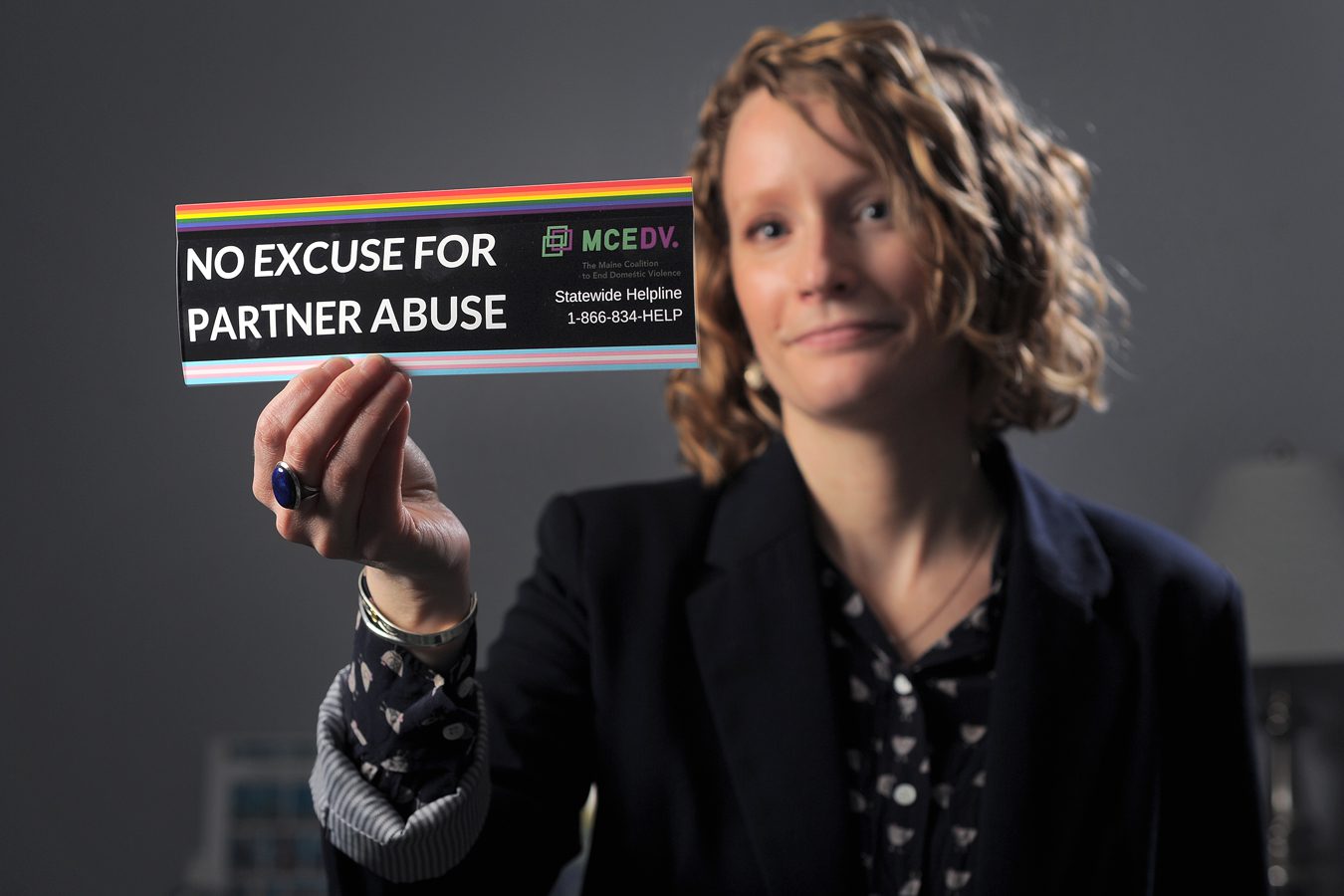There were 18 domestic abuse homicide cases in Maine in 2018 and 2019, accounting for nearly 43 percent of the state’s homicides during that period, according to a report released by Attorney General Aaron Frey.
That rate is unchanged from the last biennial report, which listed 16 homicides in 2016 and 2017 as domestic homicides, accounting for 43 percent of the homicides during that period.
The victims ranged from 7 weeks to 78 years old, according to the April 28 report, compiled by the Maine Domestic Abuse Homicide Review Panel. Five victims were younger than 11. About 64 percent of the victims were female.
The most common method of homicide was a firearm, which eight people used to kill 10 victims and seriously injure one. The offenders ranged in age from 17 to 82 and were overwhelmingly male.
Eleven offenders, all male, killed their intimate partners, including one female who died by suicide “after prolonged exposure to intimate partner violence,” according to the report.
In 14 of the 19 cases reviewed, family, friends and coworkers were aware of the abuse and tried to help, according to the report.
Francine Stark, executive director of the Maine Coalition to End Domestic Violence, in a press release said there’s “nearly always something to be done” when someone is aware of domestic abuse.
“A good first step is calling a community-based advocacy organization,” Stark said. “Your local Domestic Violence Resource Center is available 24/7 to talk with you about what is happening and help you think about next steps, resources and strategies to keep yourself and the person you are worried about safe.”
Calls to domestic abuse survivors in 2020 increased 24 percent, likely due to heightened stress and increased barriers to resources during the COVID-19 pandemic, the Maine Coalition to End Domestic Violence told The Maine Monitor in March.
The report also included a look at the last 20 years through 2019, when there were 202 domestic abuse homicide victims, accounting for 48 percent of all homicides in Maine.
“Overall, and consistent with national data, males committed the majority of domestic abuse homicides, and the majority used firearms,” according to the report.
The panel’s recommendations include expanding the community response to domestic violence by strengthening relationships between justice systems, advocacy organizations, schools and government agencies.
“One desired outcome is a strong mutual understanding of the roles of various agencies and systems,” the report said. “Another outcome is an overall higher understanding of the dynamics of domestic abuse and violence, that results in less successful manipulation of systems by perpetrators who consistently seek collusion from others.”
Gov. Janet Mills, during a press conference last week to unveil the report, described her own experience in an abusive relationship, including a night when a man held a gun to her head.
“I will never forget that night, and I will always know I was one of the lucky ones,” Mills said. “Many, many others were not so lucky.”
Mask rules relaxed
Maine has removed the residence restriction on vaccines and relaxed outdoor masking guidelines as vaccinations and temperatures rise.
Dr. Nirav Shah, director of the Maine Center for Disease Control and Prevention, on May 4 announced that the state would allow vaccinations for nonresidents. The change comes as more people are coming into the state and more doses are available. It will make it easier for people who administer shots, as well as those who need shots, such as college students returning home for the summer, he said.

In addition, Mainers no longer need to wear masks outdoors unless it is difficult to maintain physical distancing, according to new guidance that aligns with recommendations from the U.S. Centers for Disease Control and Prevention. Masks still are required for indoor public settings.
Shah said studies show that outdoor activities are much safer than indoor ones. But he encouraged Mainers to be “sensible” depending on the situation.
As of May 7, more than 650,000 Mainers have received the first dose of the COVID-19 vaccine, reflecting 48 percent of the population. About 566,000, or 42 percent, have received their second shot.
On May 4, Shah said there have been 110 cases of vaccine “breakthrough,” which is when someone gets infected with the virus after they were fully vaccinated. That means 99.8 percent of Mainers haven’t gotten sick after getting their shot. Among those breakthrough cases, the rates of hospitalization and death are “far below” an unvaccinated population, he said.
“This is evidence of the vaccine doing its job, which is to say, keeping people safe, keeping them healthy, even if they’re exposed to the virus,” Shah said.
The state’s older population is “quite well vaccinated,” Shah said, and therefore is not being hospitalized or dying at the same rates as earlier in the pandemic. However, he said vaccination rates for younger Mainers are “not where I’d like them to be,” which is leading to a higher number of cases, hospitalizations and deaths.
Mainers under age 30 now account for nearly 37 percent of all cases, according to the Maine CDC. Three people in their 20s have died from it since the start of the pandemic, two in the last two weeks.
Mainers over age 80 make up 57 percent of the more than 790 COVID-19 related deaths since the start of the pandemic.
As the state prepares for the possibility that the Pfizer vaccine will be approved for 12-15 year olds, Shah said it’s important for the younger group to get vaccinated not only for their own health but also for the health of their families and communities.
“The best way to keep older family members safe is for everybody in the family, soon down to even 12-year-olds, to get vaccinated. That keeps everyone safer. It also helps tamp down on the spread of things like variants,” Shah said.
A list of vaccination locations can be found on the Maine CDC website.
In case you missed it
Nurses at Maine Medical Center voted 1,001 to 750 in favor of forming a union, the Portland Press Herald reported.
Experts no longer expect the U.S. to reach herd immunity, where about 80 percent of Americans are vaccinated against COVID-19, the New York Times reported. Instead they expect the virus to continue circulating for years, causing deaths and hospitalizations but in smaller numbers.
Albert Bourla, CEO of Pfizer, told CNBC that the company could have a pill to treat illness from COVID-19 by the end of the year.
A new study found that for every 1,000 COVID-19 survivors experiencing lingering symptoms, doctors wrote nine more prescriptions for opioids than they otherwise would have, Kaiser Health News reported. The news raised fears about a resurgence in the prescription opioid crisis.
When a large hospital chain cut back on services at the only hospital in a small Wyoming community, local leaders raised money to build a new hospital instead, sparking a fight that has gone all the way to Washington D.C., the Wall Street Journal reported.







